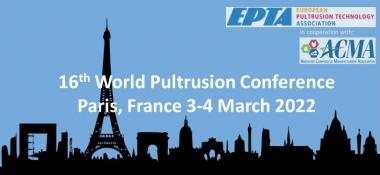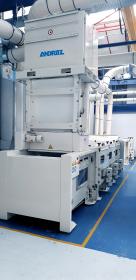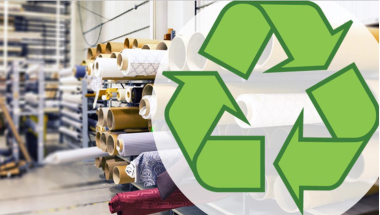16th World Pultrusion Conference - CALL FOR PAPERS
The EPTA – European Pultrusion Technology Association organizes in cooperation with the ACMA – American Composites Manufacturers Association - the 16th World Pultrusion Conference on 03 – 04 March 2022 in Paris, France (as a “hybrid event”, this conference will also have the option of online access). The conference is one of the leading pultrusion events in the world. The event takes place just before the JEC World 2022 in Paris (08 – 10 March 2022).
The presentations are to document innovations in the following subject areas of pultruded reinforced plastics:
● Market development in Europe, USA, Asia
● Innovative applications
● New Markets: Ideas for potential new applications with pultruded shapes or systems
● Sustainability: Technical possibilities, recycling, etc.
● Raw materials
○ Development of fibres
○ Development of resins
● Construction / Testing / Calculation
● Processes
The presentation language will be English. Deadline for paper submission (title, short abstract, speaker name and address) until 15th October 2021 to info@pultruders.com.
The European Pultrusion Technology Association was created in 1989 by a group of leading European pultruders with the mission of supporting the growth of the pultrusion industry by maximising external communication efforts and encouraging knowledge sharing between members. Since 2006, the association has existed under the umbrella of the AVK – Federation of Reinforced Plastics in Frankfurt, Germany. Membership of EPTA is open to all companies and individuals worldwide wishing to further the application of pultruded profiles. For further information visit http://www.pultruders.com.
European Pultrusion Technology Association EPTA call for papers American Composites Manufacturers Association World Pultrusion Conference
The European Pultrusion Technology Association (EPTA)


















